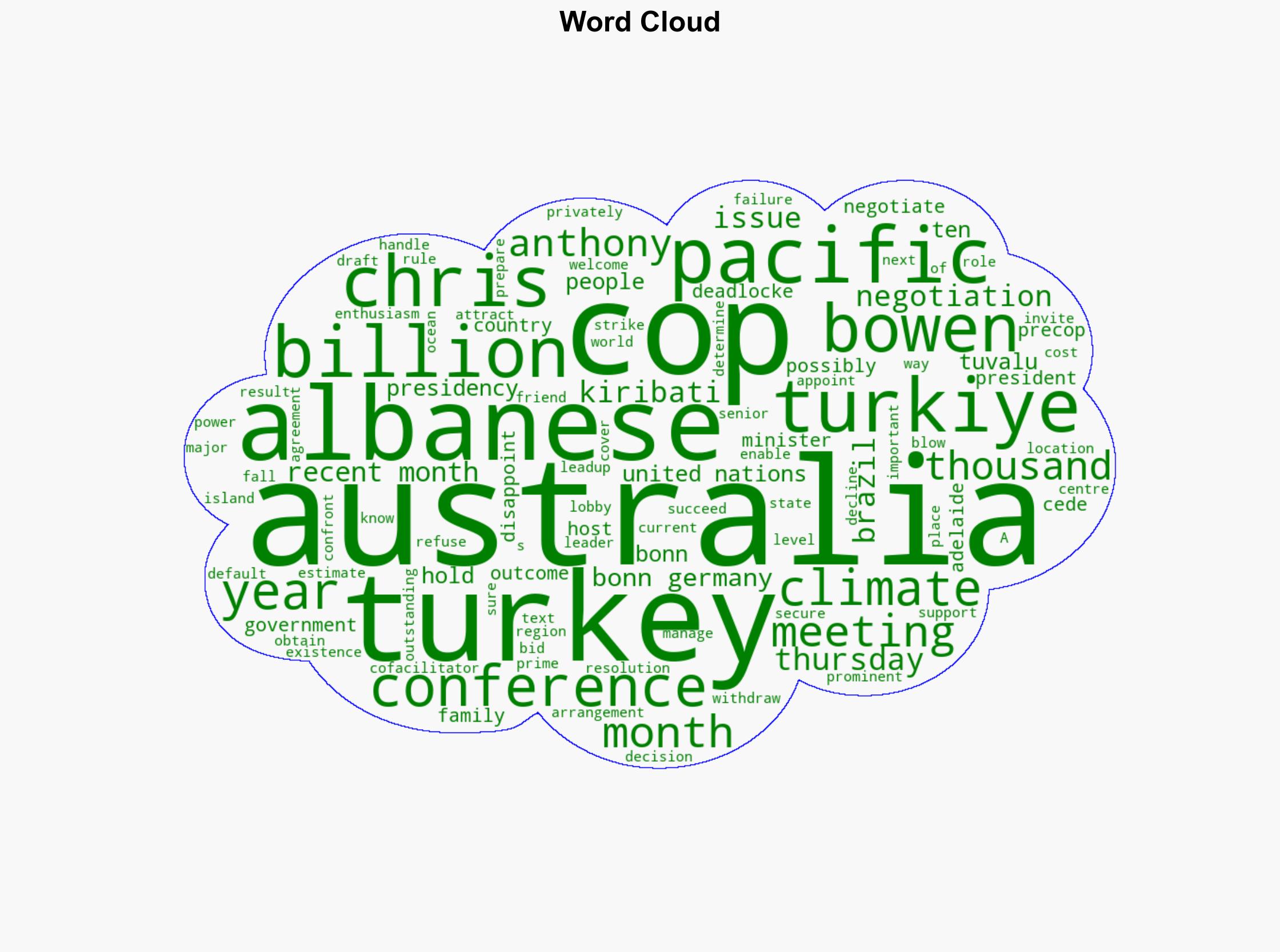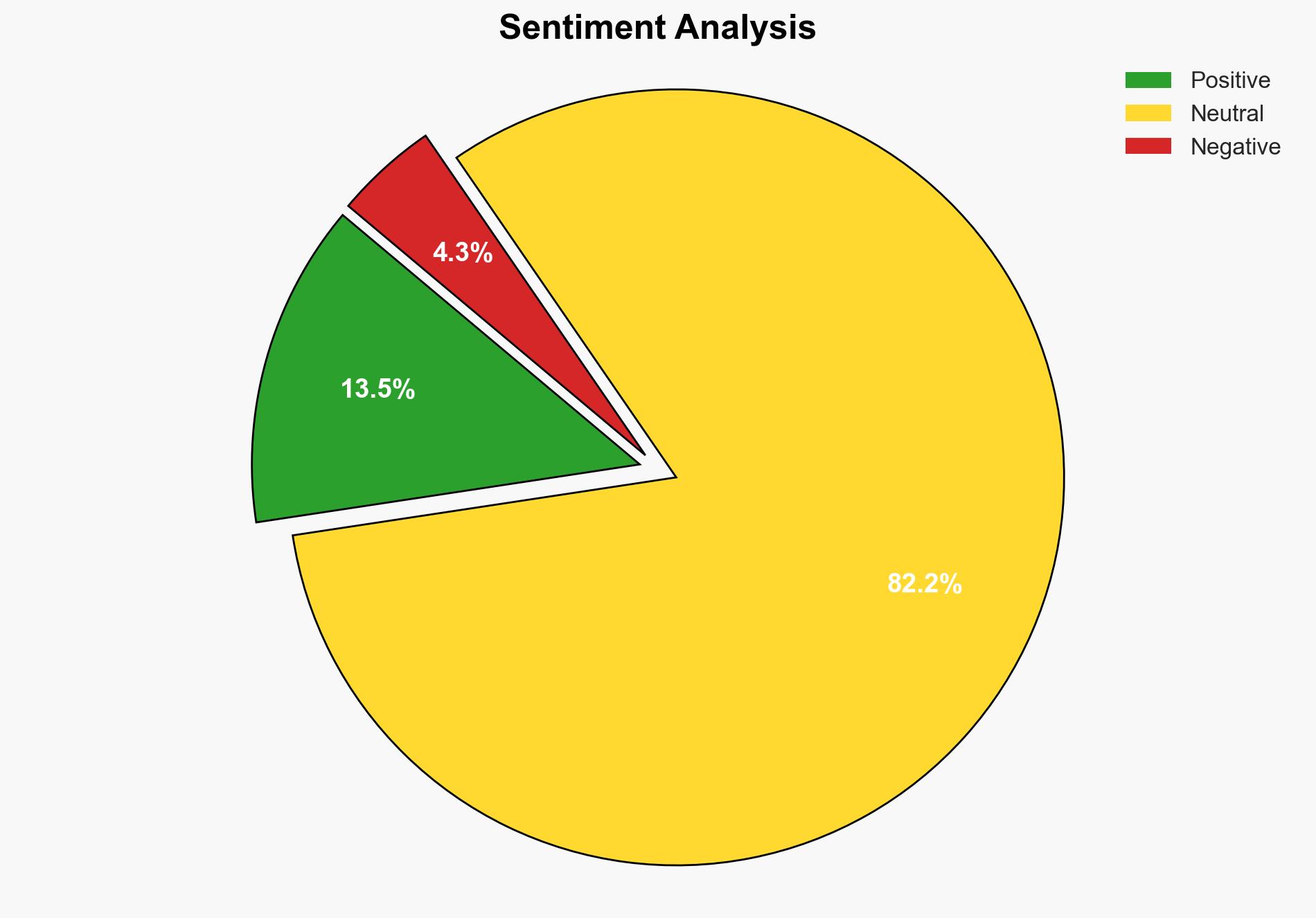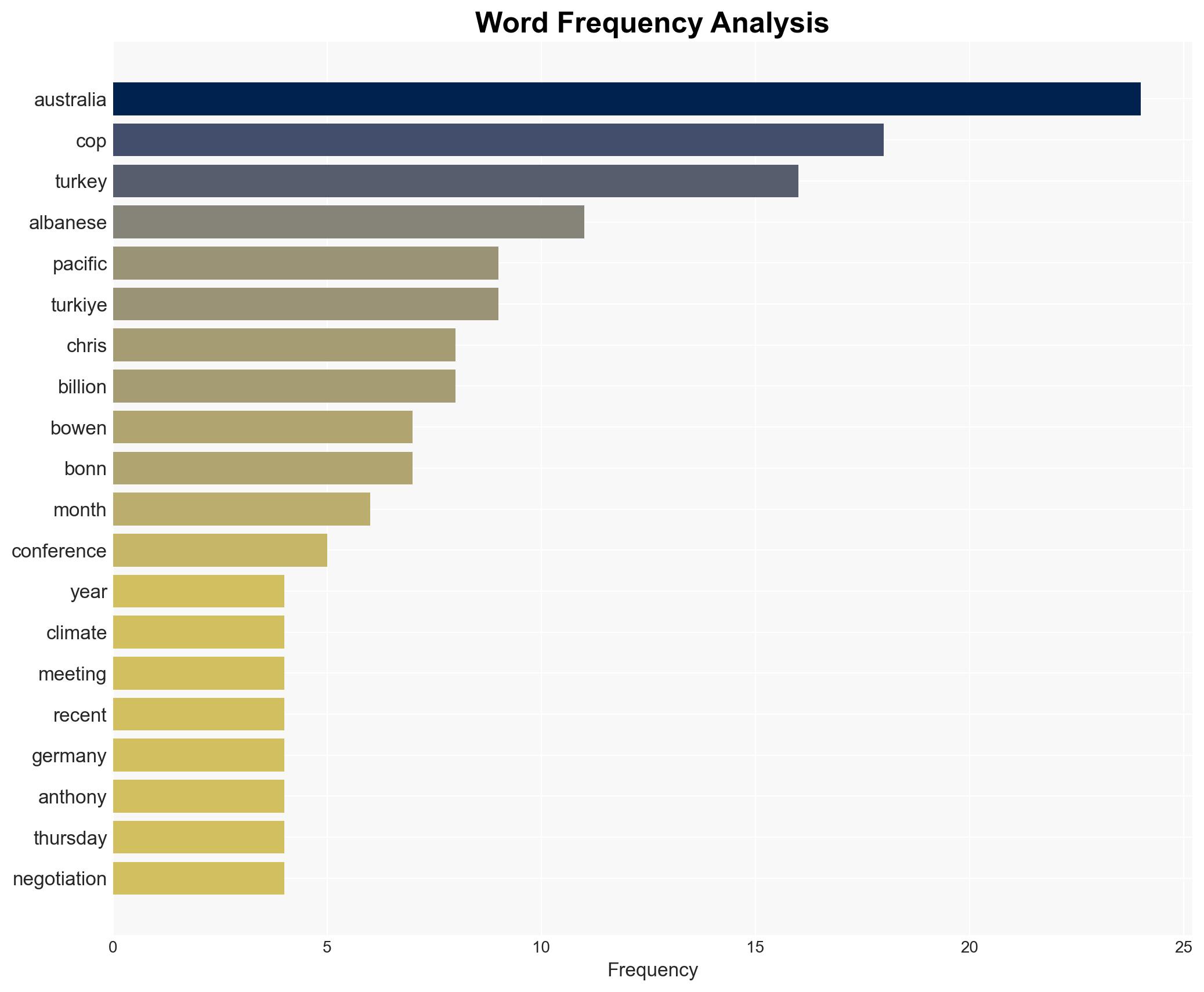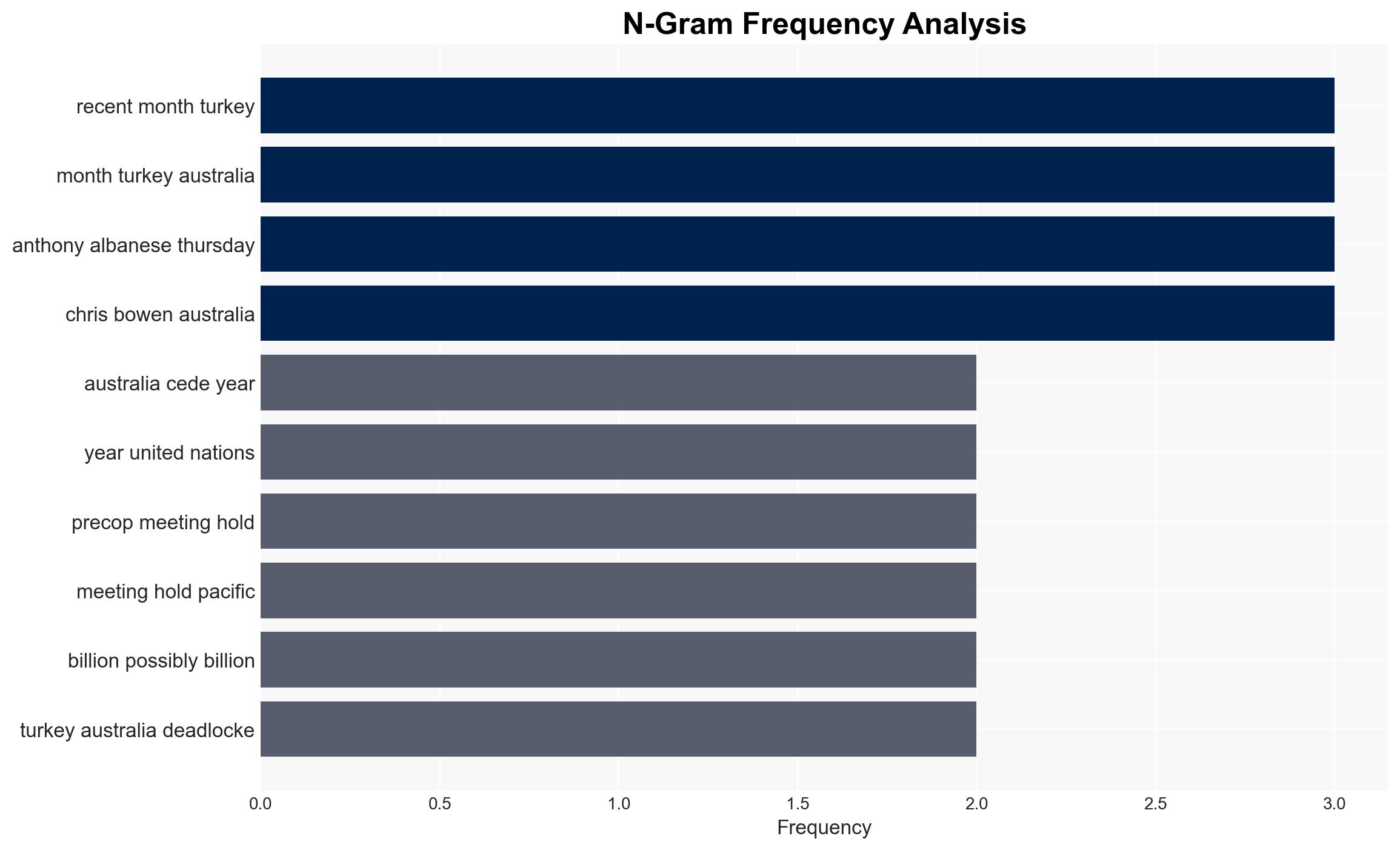Australia cedes COP31 but negotiates role for Chris Bowen and Pacific countries – The Conversation Africa
Published on: 2025-11-20
AI-powered OSINT brief from verified open sources. Automated NLP signal extraction with human verification. See our Methodology and Why WorldWideWatchers.
Intelligence Report:
1. BLUF (Bottom Line Up Front)
Australia’s decision to cede hosting COP31 to Turkey, while securing a significant role for Chris Bowen and Pacific nations, reflects strategic positioning to maintain influence in climate negotiations despite logistical setbacks. The most supported hypothesis is that Australia aims to leverage its diplomatic role to strengthen regional alliances and address Pacific climate concerns. Confidence level: Moderate. Recommended action: Enhance diplomatic engagement with Pacific nations and Turkey to ensure Australia’s strategic interests are advanced during COP31.
2. Competing Hypotheses
Hypothesis 1: Australia ceded COP31 hosting to Turkey due to logistical and financial constraints, opting instead for a strategic diplomatic role to maintain influence.
Hypothesis 2: Australia’s decision was influenced by internal political considerations, using the opportunity to bolster regional ties and address domestic climate policy criticisms.
Hypothesis 1 is more likely given the financial estimates and recent decline in government enthusiasm, suggesting a pragmatic decision to avoid the high costs while still maintaining a significant role in the negotiations.
3. Key Assumptions and Red Flags
Assumptions include Australia’s capacity to influence outcomes from a non-host position and Turkey’s willingness to collaborate closely with Australia. A red flag is the potential underestimation of Turkey’s strategic interests, which may not align with Australia’s. Deception indicators include any public statements that overly simplify the reasons for ceding the host role, potentially masking deeper strategic motives.
4. Implications and Strategic Risks
Failure to effectively engage with Turkey and Pacific nations could diminish Australia’s influence in climate policy discussions. There is a risk of political backlash domestically if the public perceives the decision as a retreat from leadership. Additionally, there is a potential for cyber and informational threats if adversaries seek to exploit perceived weaknesses in Australia’s climate strategy.
5. Recommendations and Outlook
- Strengthen diplomatic channels with Turkey to ensure alignment on key climate issues.
- Engage Pacific nations proactively to address their specific climate concerns and reinforce regional partnerships.
- Best-case scenario: Australia successfully influences COP31 outcomes through strategic alliances.
- Worst-case scenario: Australia is sidelined in negotiations, weakening its regional and global climate leadership.
- Most-likely scenario: Australia maintains a moderate influence, leveraging its role to support Pacific climate initiatives.
6. Key Individuals and Entities
Chris Bowen, Anthony Albanese, Turkey (as COP31 host), Pacific nations (Tuvalu, Kiribati).
7. Thematic Tags
Regional Focus, Regional Focus: Australia, Turkey, Pacific Islands
Structured Analytic Techniques Applied
- Causal Layered Analysis (CLA): Analyze events across surface happenings, systems, worldviews, and myths.
- Cross-Impact Simulation: Model ripple effects across neighboring states, conflicts, or economic dependencies.
- Scenario Generation: Explore divergent futures under varying assumptions to identify plausible paths.
Explore more:
Regional Focus Briefs ·
Daily Summary ·
Support us





